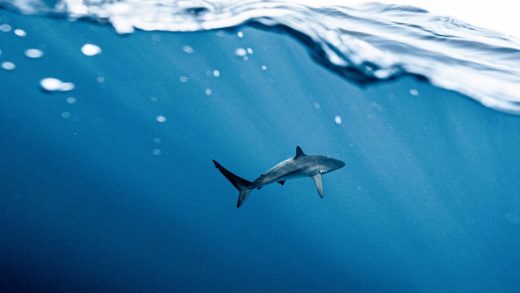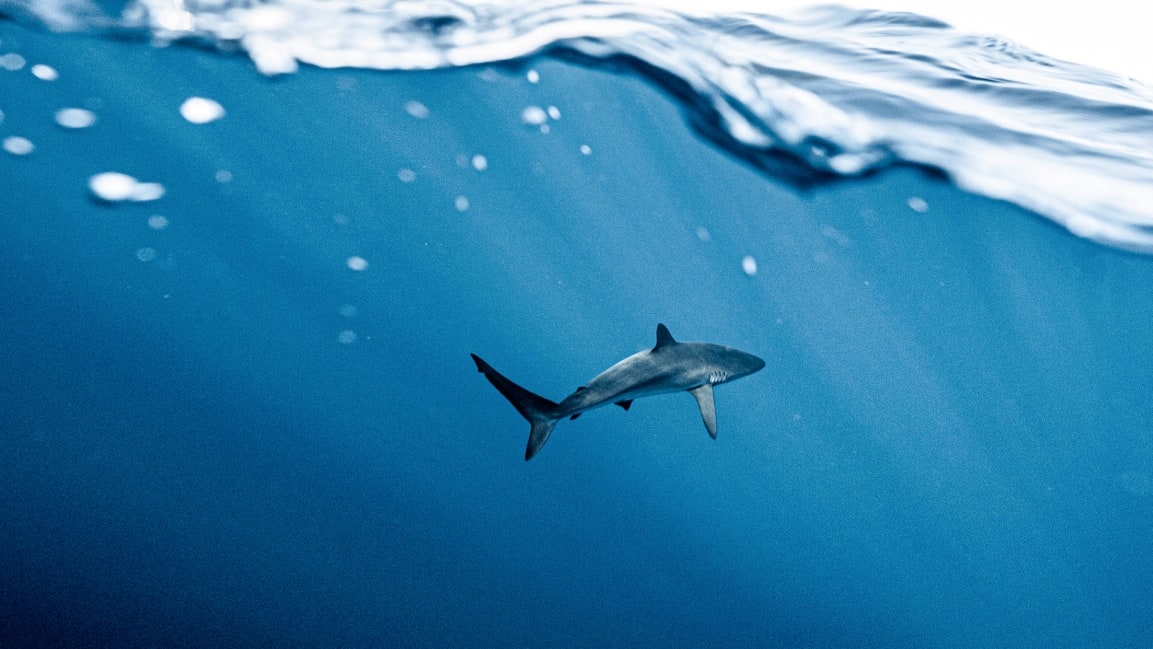POV: Why it’s time to shatter the workplace shark tank
The Zoom call came on. The CEO sat at a table, staring at the camera, at hundreds of employees facing their sad fate. He leaned in and said, speaking of the layoffs he was about to announce. “The last time I did it I cried. This time I hope to be stronger.”
Were those words supposed to be comforting? Vishal Garg had just made it painfully clear he cared more about his own reaction than theirs.
What led to this? How could someone be so callous in leading others? Not long before, Garg had sent out a brutal all-caps email. “You are too damn slow,” he wrote. “You are a bunch of dumb dolphins and . . . dumb dolphins get caught in nets and eaten by sharks. So stop it. Stop it. Stop it right now. You are embarrassing me.”
Is he right? Is Garg’s belief in the power of sharkiness paying off? Is it worth the endless PR tornado he’s unleashed for the company (ironically named “Better”) or the continuing fallout of executives? Or the total disengagement of a workforce that is sick of such brutality in the name of short-term profits?
Shark tanks, empires, and self-made celebrities can be spotted everywhere—on LinkedIn, Facebook, and Instagram. Stories blasted about the hustle culture. A flood of selfies pushed in all directions to get attention, increase clicks, and attract more followers. Eat or be eaten. Be the first. Be the best.
The endangered shark
For those looking to create success in this new world, this can be confusing. Do you need to brag about the borrowed Lamborghinis behind you, as you livestream a tour of your oversize house, telling subscribers how this lifestyle is easy to attain in three simple steps? Is it necessary to log all travels to exotic locations, snapping up perfectly cropped photos of beautiful meals, serene landscapes, and your bold body in workout clothes? If anything, COVID quarantining has caused us to question the need for all this celebrity-making, exposing its shallowness.
What about leaders pursuing performance and profits at all costs? The success of TV’s Shark Tank, filled with wannabe entrepreneurs begging greedy investors for cash, in exchange for the lion’s share of their business, has proven one thing: Entrepreneurialism is alive and well. But it’s also propped up the idea that success is about sitting in the highchair and looking down at would-be successors only to squeeze them dry. Like a virus, it has spread the idea that fame, fortune, and followers are just one self-glorifying selfie away from being realized.
What explains this mad pursuit of “sharkiness”? After all, didn’t Jaws teach us that sharks aren’t the cuddly friends we can get in the water with, but, in fact, will devour us whole if we are in close proximity? Why do people aspire to be sharks in their careers or life? Sharks are selfish. They’re competitive and they consume.
In a world now starving for empathy, the shark approach is a failure. Should we really continue to follow the shark template? The world needs connection, collaboration, and cocreation. This is what dolphins do. They live in pods, teams, and work together. They inspire, help, defend, and protect each other.
Dolphins aren’t stuck in selfish pursuits or self-obsession. Instead, they build relationships. How else do we, as a global society, ever expect to eradicate such social ills as racism, a global pandemic, or injustice? Together is the only way.
This is the way of the dolphin, not the shark.
The idea of Shark Tank success is shattered as we see self-serving politicians and leaders center the universe around themselves.
Dolphins believe in the power of selflessness
They stick with what inspires and ignore what doesn’t. Dolphins don’t seek to impress everyone. Those who act like dolphins don’t obsess about status or social updates. They spend less time image-managing and more time designing an inspired life. They know authenticity outweighs smoke and mirrors any day. They inspire others to become their best. And when people don’t like their approach, they move on, knowing they gave it their all.
We see this in the Golden State Warriors NBA basketball team, as Coach Steve Kerr has led them to become a selfless force—constantly high-fiving each other even when they fail, passing the ball to get the best shot (even when it’s an insane three-pointer), regardless of who’s taking it, and showering accolades on others in interviews, rather than on themselves. They’ve become so dolphin-like, Steph Curry and Klay Thompson were dubbed “the Splash Brothers.”
Dolphins don’t obsess about winning or being right
Ever known someone who thought that just winning or being right would make them happy? Dolphins know better. They have goals that inspire, but they don’t let winning take over their life. They’re driven by an endless purpose that’s connected to creating unbreakable relationships, lifting the less fortunate, and changing the world with others.
They don’t believe everything is all about them
Dolphins contribute to an ecosystem. They look outward for ways to connect and bring attention and understanding to those around them. They don’t let technology stop them from strengthening relationships. Whenever they get showered with attention, they share it with others—family, friends, and acquaintances.
Dolphins don’t think they’re above reaching out
When others skip over those in need, dolphins dive in to help. They put themselves out there constantly, giving whenever they can. There is something inherently innovative about how they serve. They don’t just check the box or do things to be seen. They put their heart into reaching out to others even when it’s inconvenient. When they give, they aren’t concerned about getting back. They do not seek transactions with others but look for ways to be a catalyst for transformations.
They don’t think success can make up for failure at home
Dolphins put their home life ahead of things that don’t matter as much. They measure success by those who mean the most to them. This fuels them forward through challenges they face.
Dolphins don’t disregard their health
They don’t let themselves get lazy, or put off sleep, exercise, or eating well. By giving their body what it needs, they offer themselves the ultimate gift: the power to be an instrument for good in ways that keep on giving.
They don’t believe they can change the world alone
Dolphins aren’t into one-person spotlights. They know it takes a team, a village, and a band of brothers and sisters working together as one to make change. They rely on a cocreative power.
Chris Deaver and Ian Clawson are cofounders of BraveCore, a leadership consultancy that’s shaping the future by helping leaders be more creative and creatives be better leaders.
Fast Company , Read Full Story
(70)



